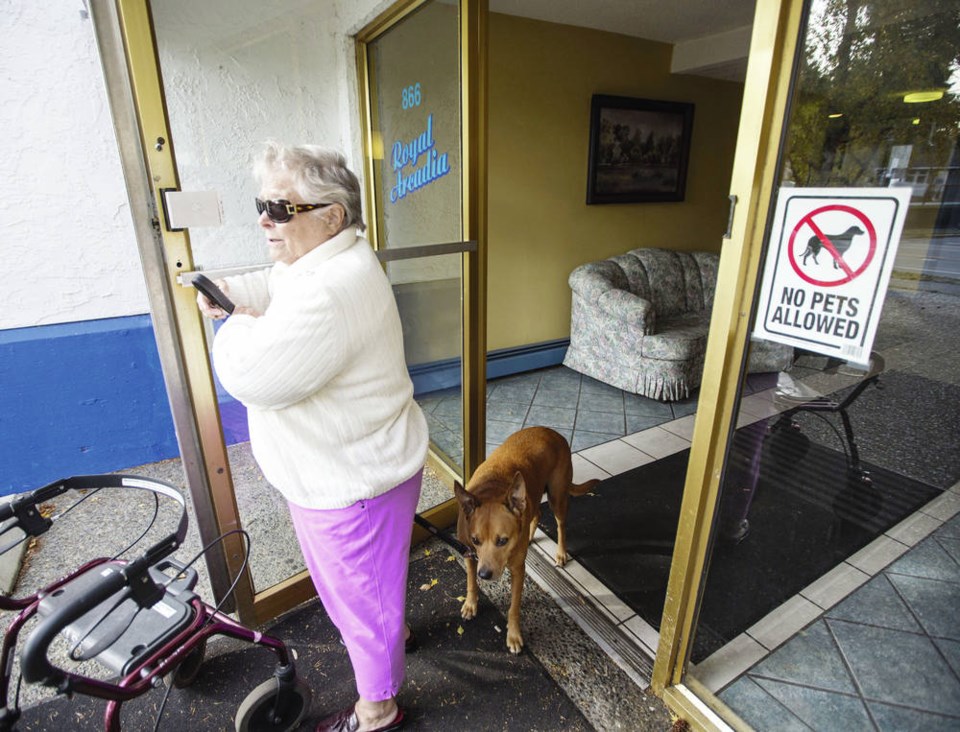Vancouver city council has passed a motion calling for an end to pet bans in rental accommodation. The vote was unanimous.
The motion asks the province to enforce a no-pet-ban policy, but it also instructs staff to research ways whereby council can act on its own.
I realize there are lots of folks, often seniors, who derive great pleasure and companionship from having a pet, especially in these days of COVID-19 isolation. Certainly we shouldn’t have a situation where someone cannot find pet-friendly accommodation.
But as is too often the way with local governments, the motion goes far beyond the minimum necessary intervention. It demands that all rental housing must be pet friendly. No alternatives are permitted.
There are serious objections to this diktat. First, people with respiratory disorders, such as asthma or COPD, often cannot be around dogs or cats. Their fur triggers an attack that may mean a visit to the local ER.
Studies show that cat dander, in particular, is hard to remove and can persist for six months or longer, despite the most strenuous efforts to remove it. That’s a real threat to a vulnerable person moving into an apartment that previously housed a pet.
Again, renters who work night shifts must sleep during the day. But that can be well nigh impossible if some damn pekingese spends the sunlit hours yapping its head off next door.
These folks have rights, too — in this case, the right to find a quiet place to sleep.
However, there is a broader issue here. Where, exactly, has Vancouver city council discovered the authority to enforce such a motion?
I’ve ploughed through the Local Government Act. It has 783 separate sections, several of them tortuous in length. The entire statute is longer than the King James Bible, though not as well written.
I’ve also read the Vancouver Charter, all 622 sections. More of the same. Nowhere in either document can I find the power to enforce a no-pet-ban order.
There are sections dealing with noisy or dangerous dogs.
There are sections dealing with farm animals. But so far as I could see, nothing about pet bans.
Now to be fair, such a power may indeed exist somewhere in these meandering and voluminous statutes.
Indeed, as things stand, it’s entirely possible that under the Local Government Act, the City of Victoria has the right to invade Poland, such is the profusion of unintelligible blather.
For all we know, Central Saanich could annex Calgary. Sooke district council could extend the Canadian boundary through Haro Strait right up to the waterfront in Washington state.
Nevertheless, the last thing we need is for city councils or the province to be hunting up ways to force pets into buildings where the majority of occupants don’t want them. Even if Vancouver city staff can invent such a power, it should not be employed.
A more rational approach would be to lay out a zoning scheme that protects both options. Thus, if a shortage of pet-friendly apartments grows up, council might limit permits for buildings with pet bans to correct the balance.
Likewise, if the opposite emerges, pet-banning facilities should be granted permits to preserve the right to a pet-free environment.
Both of these are legitimate choices that renters should be able to select.
Over-mighty local governments have no business stamping one of them out of existence.



